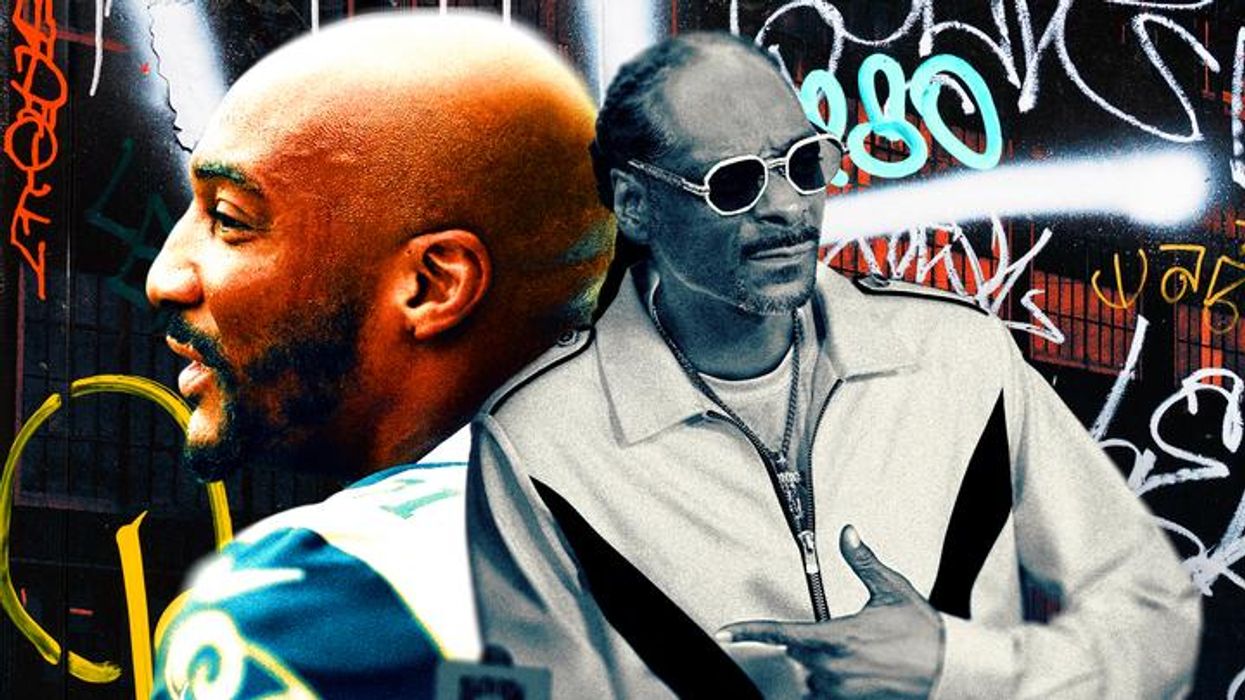
Abbie Parr / Stringer, Frazer Harrison / Staff | Getty Images

Twenty-five years ago, when I entered local talk radio in Kansas City, I gave myself a nickname: Big Sexy.
It was a double entendre. As a talk show, it represented that I had a “big mouth” and spewed “sexy opinions.” Off air, it represented my narcissism, hedonism, and delusion. It was an embrace and celebration of my enormous size and sexual lust.
The nickname exemplified my toxic level of self-idolatry. I built an identity based on my sin. A seemingly fun and harmless nickname normalized and justified my gluttony and a social life that led me away from marriage and family.
The identities we promote matter.
I bring this up as it relates to Aqib Talib, the former NFL star intricately involved in a Pee Wee football brawl that led to the shooting death of Mike Hickmon. Talib’s brother, Yaqub Talib, has been arrested for the shooting. Video evidence and eyewitness accounts suggest Aqib Talib sparked the brawl. No rational person can feign surprise that Aqib Talib was involved in a deadly confrontation.
Aqib Talib spent the better part of two decades projecting an identity and image of himself as a football-playing thug. He wanted everyone he came in contact with to know he was “about that life.”
“About that life” is urban slang for having an ostentatious lifestyle involving drugs, guns, violence. It’s an image commercial rappers embrace and emote. Tupac Shakur tatted “thuglife” across his stomach. Snoop Dogg celebrates his membership in the Crips. So did Nipsey Hussle. Gunmen murdered Shakur and Hussle. Snoop faced murder charges.
Rappers attract the same negative, violent energy their music promotes. The identities they embrace shorten their life expectancies.
That’s why football's and basketball’s adoption of rap as their musical soundtracks is dangerous and problematic. That’s why black culture being so heavily defined by hip-hop music is dangerous and problematic.
The very identity we have embraced is killing us.
In 2007, Aqib Talib starred on one of the greatest Kansas football teams of all time. Under the direction of Mark Mangino, the Jayhawks compiled a 12-1 record and beat Virginia Tech in the Orange Bowl. I covered those Jayhawks as a sports columnist for the Kansas City Star.
Talib was the best player on that team. He also had a reputation as the worst person on that team. Even as a collegian, Talib wanted everyone to know he was about that life.
His reputational choice is not uncommon among black football and basketball players. They adorn themselves in prison tattoos, sag their pants, braid their hair, drape themselves in gold chains, and dabble in freestyle rap.
Too many black jocks want to be black rappers. It’s no secret. Back in July, NFL quarterback Teddy Bridgewater made a social media post complaining about his peers posing as “gangstas,” writing:
“Tired of seeing football players portray this tough guy image or pretend he’s a gangsta. You went to school, attended those classes and some even got their college degree. You might have 1.5% of professional football players that’s on that but the remaining 98.5% are only ‘football tough.’
“So don’t wait till you inherit this legal money from the league to decide you want to be tougher (and) portray a street image cause it’s kids that’s looking up to everything we do. Plus it’s someone sitting in a cell or posted in the hood who might’ve been just as hood as you that would advise you otherwise.”
To be clear, Talib courted the gangsta image long before he became an NFL millionaire. What’s troublesome is his unwillingness to discard that image. What’s really troublesome is that there is little cultural pressure for him to adopt a more positive reputation and image.
Popular culture celebrates the bad guy. From Tony Soprano to Jay Z, the American zeitgeist rewards the unrepentant criminal.
Aqib Talib was involved in a series of unflattering on- and off-field situations that tarnished his reputation.
In 2008, he engaged in a brawl at the NFL rookie symposium. In 2009, he was arrested after an altercation with a taxi driver. In 2011, Aqib and his mother were suspected of firing a gun at his sister’s boyfriend. In 2016, Talib attacked Tennessee Titans receiver Harry Douglas on the sideline. After the game, Talib told reporters that he would “beat Douglas’ ass” the next time he saw him at their agent’s office. In 2017, Aqib and Raiders receiver Michael Crabtree had an ugly on-field skirmish. Aqib snatched a gold chain from Crabtree’s neck.
Despite that, somehow Fox Sports and the NFL were comfortable handing Talib a broadcasting job. His shady background legitimized and enhanced his credentials. He was a coveted broadcaster. Amazon plans (or planned) to make him part of the NFL’s Thursday Night Football broadcast.
The culture is reinforcing the message that bad is good.
The identity you adopt locks you into a set of expectations you must meet.
Yesterday, I talked extensively with a group of coaches who worked alongside Mike Hickmon, the man Yaqub Talib allegedly shot and killed. The coaches, to a man, all said Aqib Talib could easily have de-escalated a tense situation.
The reality is Talib’s reputation made that impossible. His identity dictates that he run toward trouble, not away from it. He’s always been about that life, the lifestyle unafraid to turn violent over a simple verbal disagreement.
It’s a lifestyle that interprets disrespect as worthy of the death penalty.
The sports world’s partnership with hip-hop culture undermines men like Aqib Talib from evolving past the self-destructive identities they adopt as kids. The NFL and NBA reinforce the “about that life” mentality that will likely cost Yaqub Talib his freedom and Aqib Talib his financial fortune.
American culture is so toxic at the moment that it won’t surprise me if the NFL, Fox Sports, and Amazon play Snoop Dogg’s "Murder Was the Case" as intro music for Talib.Jason Whitlock
BlazeTV Host